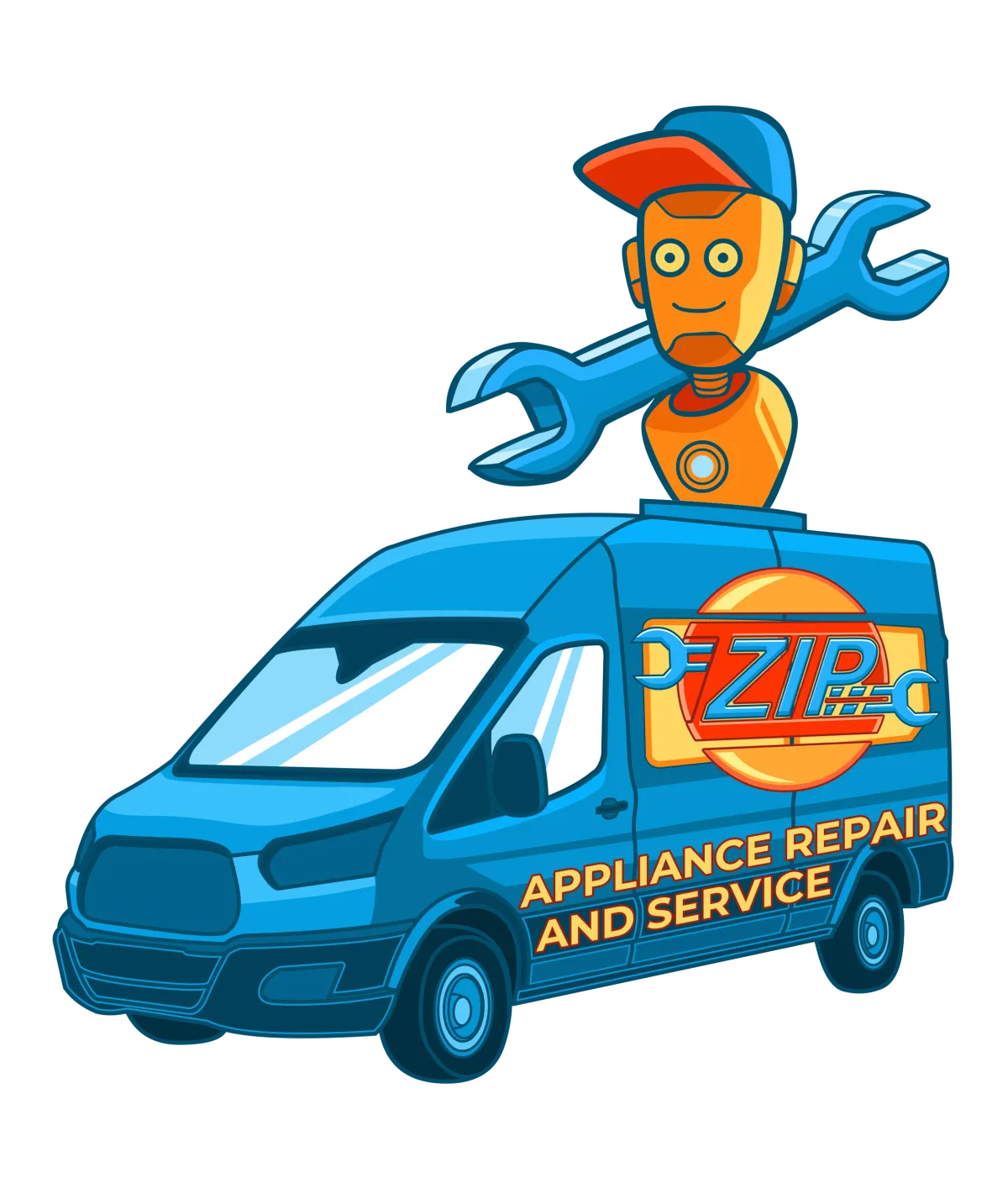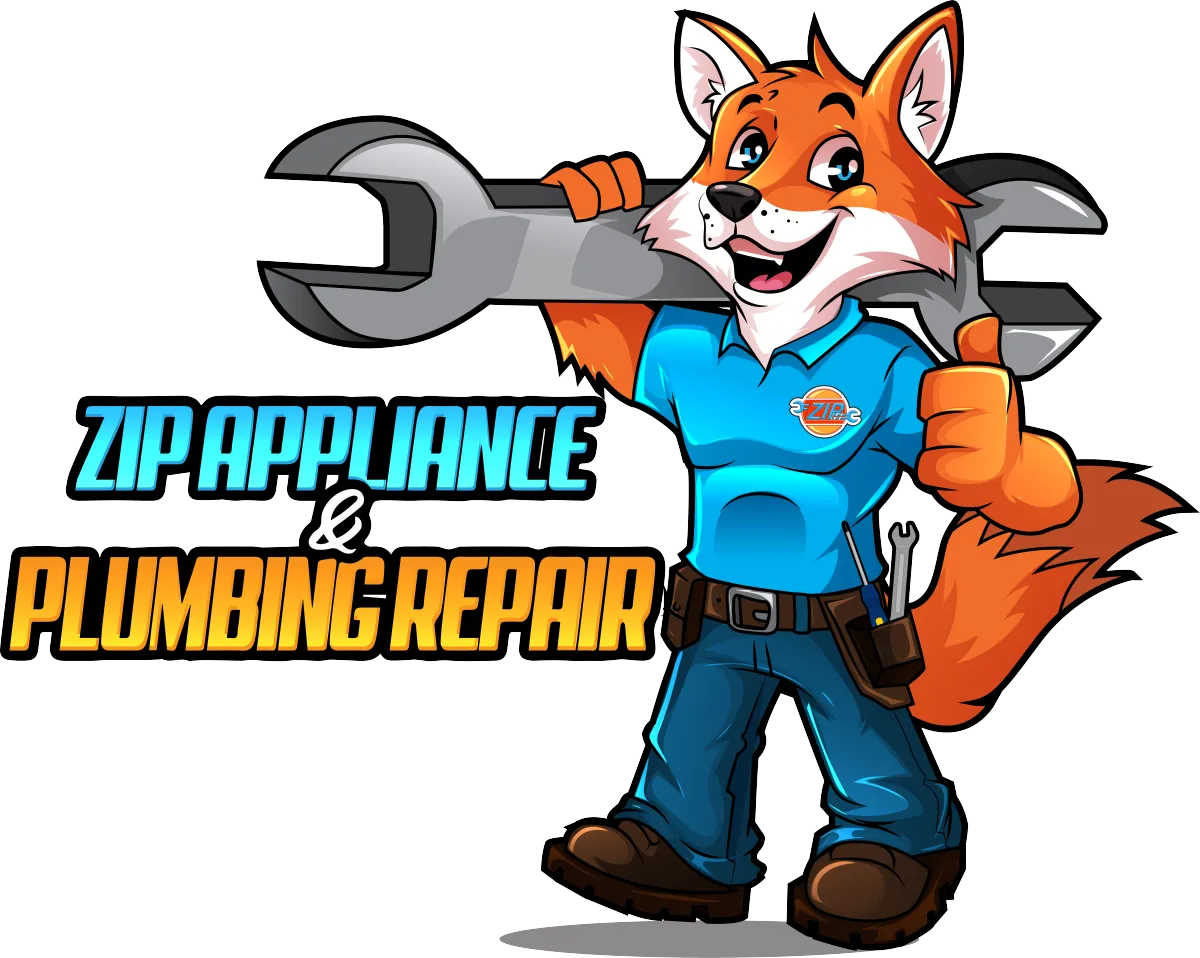Phone: (559) 272-4265
Appliance Repair Tips For Bakersfield, CA Residents

Cut Your Energy Bills: Harnessing the Latest in Appliance Technology
Investing in modern, energy-efficient appliances not only lowers your utility bills but also brings long-term savings and sustainability to your home - Appliance Boss
INTRODUCTION:
In today’s fast-paced world, managing household expenses is becoming more critical, and energy consumption is a major contributor to monthly bills. With the growing concern about environmental sustainability and rising utility costs, homeowners are increasingly looking for ways to save energy and reduce their carbon footprint. One of the most impactful and straightforward solutions lies in upgrading to the latest appliance technology.
Modern appliances not only perform better but are also designed to operate with much greater energy efficiency, helping you save money while being kinder to the environment. In this blog, we’ll explore the benefits of energy-efficient appliances, key innovations in appliance technology, and practical ways to make the most of these advancements to lower your energy bills.

1. Why Energy-Efficient Appliances Matter
Energy-efficient appliances have transformed the way households consume power. According to the U.S. Department of Energy, appliances account for about 13% of a household's energy costs, with heating and cooling systems contributing to a significant portion of the overall consumption. The introduction of energy-efficient technologies has led to appliances that use significantly less power while performing at a high level. This means less strain on the power grid and lower energy bills for consumers.
For instance, upgrading to an ENERGY STAR®-certified refrigerator, dishwasher, or washing machine can lead to substantial long-term savings. ENERGY STAR®-rated appliances meet strict energy efficiency guidelines set by the U.S. Environmental Protection Agency (EPA) and can reduce household energy usage by up to 30%.
These appliances achieve energy savings through a combination of advanced motors, better insulation, and innovative designs that use less electricity without sacrificing performance. Whether you’re running your dishwasher or keeping your food fresh, these devices are designed to maximize performance while minimizing energy consumption.
2. The Rise of Smart Appliances: Convenience Meets Efficiency
Smart appliances are changing the way we interact with technology at home. They offer a blend of convenience and energy-saving potential that was unimaginable just a decade ago. By integrating smart technology, homeowners can control, monitor, and optimize their appliance usage from their smartphones or voice assistants.
For example, smart refrigerators can alert you when doors are left open or when food is approaching its expiration date, reducing food waste and unnecessary energy consumption. Smart washing machines allow you to schedule laundry cycles during off-peak energy hours, reducing electricity costs.
Smart thermostats, such as the Google Nest or Ecobee, are one of the most effective ways to reduce energy use. These devices learn your habits, automatically adjust the temperature when you're asleep or away, and allow remote control from your smartphone. In fact, smart thermostats can cut heating and cooling costs by as much as 10-15% annually.
3. Key Appliance Technologies That Save Energy
In addition to smart features, many appliances are equipped with specific technologies designed to reduce energy usage. When shopping for new appliances, it’s helpful to understand these key features so you can make informed purchasing decisions.
Inverter Technology: Found in many modern refrigerators, washing machines, and air conditioners, inverter technology adjusts the speed of the motor or compressor based on real-time conditions. Traditional appliances cycle on and off, consuming more energy to reach the desired performance levels. Inverter-driven appliances, by contrast, run at variable speeds to maintain optimal conditions while using less energy. This leads to greater efficiency, quieter operation, and longer appliance life.
Load-Sensing Technology: Washing machines and dishwashers with load-sensing technology automatically adjust the water and energy usage based on the size and weight of the load. For example, if you’re washing a smaller load of laundry, the appliance will use less water and power, preventing unnecessary waste.
Heat Pump Technology: Heat pumps are becoming more common in both HVAC systems and dryers. Unlike traditional dryers that use electric or gas heat, heat pump dryers recycle warm air, drying clothes more efficiently and with less energy consumption. Similarly, heat pump HVAC systems move heat rather than generate it, making them up to three times more energy-efficient than traditional heating and cooling systems.
Advanced Insulation & Sealing: New refrigerators and freezers use enhanced insulation and better door seals to keep cold air inside, reducing the effort required to maintain internal temperatures. This leads to lower energy usage and better food preservation.
4. Understanding the Cost-Benefit of Upgrading
One of the biggest questions homeowners face is whether the cost of upgrading to newer appliances is worth it. While the upfront cost of energy-efficient or smart appliances may be higher than their traditional counterparts, the long-term savings are undeniable. The reduction in energy consumption leads to smaller utility bills, which, over time, offset the initial investment.
For example:
A new energy-efficient refrigerator can save you between $200 and $400 over the appliance's lifetime.
Smart thermostats can save between $130 and $180 annually on heating and cooling costs, which means they usually pay for themselves within two years.
High-efficiency washing machines can save about 7,000 gallons of water per year, reducing both water and electricity bills.
In addition, many governments, utility companies, and manufacturers offer rebates and tax credits for purchasing energy-efficient appliances, further reducing the cost of upgrading.
5. Optimizing Appliance Usage for Maximum Savings
Owning energy-efficient appliances is only part of the equation. To maximize savings, it's essential to use these appliances efficiently:
Use Eco Modes: Many modern appliances come with energy-saving modes that optimize performance while using less power. For example, using the eco mode on your dishwasher may take longer, but it will use less water and electricity.
Schedule Usage During Off-Peak Hours: Electricity rates often fluctuate throughout the day based on demand. Using appliances like dishwashers, washers, and dryers during off-peak hours can lead to lower energy costs. Smart appliances often include scheduling features to help you manage this.
Proper Maintenance: Keeping your appliances in good working order ensures they operate at peak efficiency. For example, regularly cleaning the filters in your air conditioner, refrigerator, or dryer helps them use less energy to achieve the same results.
6. Appliances for Water Efficiency
Water-efficient appliances are another critical aspect of reducing both energy and water bills. Appliances like dishwashers and washing machines have evolved to use water more judiciously, without sacrificing cleaning performance. Here are a few water-saving technologies to look for:
Front-Load Washing Machines: These machines use up to 40% less water than top-load models, thanks to their tumbling action, which uses gravity to help clean clothes. This results in less water and energy needed per load.
Efficient Dishwashers: Many modern dishwashers come equipped with sensors that detect the level of dirtiness in your dishes and adjust water usage accordingly. This reduces the amount of water needed while still achieving excellent cleaning results.
7. The Environmental Impact: Saving the Planet While Saving Money
Switching to energy-efficient appliances does more than just lower your monthly bills—it also helps protect the environment. Using less energy reduces your home’s carbon footprint, contributing to lower greenhouse gas emissions. According to the ENERGY STAR® program, if every household in the U.S. used ENERGY STAR-rated appliances, the country could prevent over 100 million tons of greenhouse gas emissions annually, equivalent to the emissions from 20 million cars.
This means that your decision to invest in energy-efficient technology not only saves you money but also makes a positive impact on the planet.
Final Thoughts
Upgrading to the latest appliance technology is one of the smartest investments you can make as a homeowner. Whether you’re drawn to the convenience of smart home integration or the cost savings offered by energy-efficient models, these appliances are designed to provide maximum performance while reducing your household's energy footprint. From smart thermostats to eco-friendly washers and dryers, today’s innovations offer a wide range of options to suit every home and budget.
At Zip Appliance and Plumbing Repair, we specialize in helping homeowners make the transition to energy-efficient appliances. If you’re considering upgrading your home’s appliances, we’re here to assist with installation, repairs, and expert advice on the best products for your needs. For more information or to schedule a service, visit our website at www.ziprepairservice.com, or give us a call at (661) 387-2282.
Energy-efficient appliances aren’t just a trend—they’re a long-term solution to rising energy costs and environmental sustainability. So, take the plunge, invest in the future, and watch your energy bills shrink while making your home smarter and greener.

Cut Your Energy Bills: Harnessing the Latest in Appliance Technology
Investing in modern, energy-efficient appliances not only lowers your utility bills but also brings long-term savings and sustainability to your home - Appliance Boss
INTRODUCTION:
In today’s fast-paced world, managing household expenses is becoming more critical, and energy consumption is a major contributor to monthly bills. With the growing concern about environmental sustainability and rising utility costs, homeowners are increasingly looking for ways to save energy and reduce their carbon footprint. One of the most impactful and straightforward solutions lies in upgrading to the latest appliance technology.
Modern appliances not only perform better but are also designed to operate with much greater energy efficiency, helping you save money while being kinder to the environment. In this blog, we’ll explore the benefits of energy-efficient appliances, key innovations in appliance technology, and practical ways to make the most of these advancements to lower your energy bills.

1. Why Energy-Efficient Appliances Matter
Energy-efficient appliances have transformed the way households consume power. According to the U.S. Department of Energy, appliances account for about 13% of a household's energy costs, with heating and cooling systems contributing to a significant portion of the overall consumption. The introduction of energy-efficient technologies has led to appliances that use significantly less power while performing at a high level. This means less strain on the power grid and lower energy bills for consumers.
For instance, upgrading to an ENERGY STAR®-certified refrigerator, dishwasher, or washing machine can lead to substantial long-term savings. ENERGY STAR®-rated appliances meet strict energy efficiency guidelines set by the U.S. Environmental Protection Agency (EPA) and can reduce household energy usage by up to 30%.
These appliances achieve energy savings through a combination of advanced motors, better insulation, and innovative designs that use less electricity without sacrificing performance. Whether you’re running your dishwasher or keeping your food fresh, these devices are designed to maximize performance while minimizing energy consumption.
2. The Rise of Smart Appliances: Convenience Meets Efficiency
Smart appliances are changing the way we interact with technology at home. They offer a blend of convenience and energy-saving potential that was unimaginable just a decade ago. By integrating smart technology, homeowners can control, monitor, and optimize their appliance usage from their smartphones or voice assistants.
For example, smart refrigerators can alert you when doors are left open or when food is approaching its expiration date, reducing food waste and unnecessary energy consumption. Smart washing machines allow you to schedule laundry cycles during off-peak energy hours, reducing electricity costs.
Smart thermostats, such as the Google Nest or Ecobee, are one of the most effective ways to reduce energy use. These devices learn your habits, automatically adjust the temperature when you're asleep or away, and allow remote control from your smartphone. In fact, smart thermostats can cut heating and cooling costs by as much as 10-15% annually.
3. Key Appliance Technologies That Save Energy
In addition to smart features, many appliances are equipped with specific technologies designed to reduce energy usage. When shopping for new appliances, it’s helpful to understand these key features so you can make informed purchasing decisions.
Inverter Technology: Found in many modern refrigerators, washing machines, and air conditioners, inverter technology adjusts the speed of the motor or compressor based on real-time conditions. Traditional appliances cycle on and off, consuming more energy to reach the desired performance levels. Inverter-driven appliances, by contrast, run at variable speeds to maintain optimal conditions while using less energy. This leads to greater efficiency, quieter operation, and longer appliance life.
Load-Sensing Technology: Washing machines and dishwashers with load-sensing technology automatically adjust the water and energy usage based on the size and weight of the load. For example, if you’re washing a smaller load of laundry, the appliance will use less water and power, preventing unnecessary waste.
Heat Pump Technology: Heat pumps are becoming more common in both HVAC systems and dryers. Unlike traditional dryers that use electric or gas heat, heat pump dryers recycle warm air, drying clothes more efficiently and with less energy consumption. Similarly, heat pump HVAC systems move heat rather than generate it, making them up to three times more energy-efficient than traditional heating and cooling systems.
Advanced Insulation & Sealing: New refrigerators and freezers use enhanced insulation and better door seals to keep cold air inside, reducing the effort required to maintain internal temperatures. This leads to lower energy usage and better food preservation.
4. Understanding the Cost-Benefit of Upgrading
One of the biggest questions homeowners face is whether the cost of upgrading to newer appliances is worth it. While the upfront cost of energy-efficient or smart appliances may be higher than their traditional counterparts, the long-term savings are undeniable. The reduction in energy consumption leads to smaller utility bills, which, over time, offset the initial investment.
For example:
A new energy-efficient refrigerator can save you between $200 and $400 over the appliance's lifetime.
Smart thermostats can save between $130 and $180 annually on heating and cooling costs, which means they usually pay for themselves within two years.
High-efficiency washing machines can save about 7,000 gallons of water per year, reducing both water and electricity bills.
In addition, many governments, utility companies, and manufacturers offer rebates and tax credits for purchasing energy-efficient appliances, further reducing the cost of upgrading.
5. Optimizing Appliance Usage for Maximum Savings
Owning energy-efficient appliances is only part of the equation. To maximize savings, it's essential to use these appliances efficiently:
Use Eco Modes: Many modern appliances come with energy-saving modes that optimize performance while using less power. For example, using the eco mode on your dishwasher may take longer, but it will use less water and electricity.
Schedule Usage During Off-Peak Hours: Electricity rates often fluctuate throughout the day based on demand. Using appliances like dishwashers, washers, and dryers during off-peak hours can lead to lower energy costs. Smart appliances often include scheduling features to help you manage this.
Proper Maintenance: Keeping your appliances in good working order ensures they operate at peak efficiency. For example, regularly cleaning the filters in your air conditioner, refrigerator, or dryer helps them use less energy to achieve the same results.
6. Appliances for Water Efficiency
Water-efficient appliances are another critical aspect of reducing both energy and water bills. Appliances like dishwashers and washing machines have evolved to use water more judiciously, without sacrificing cleaning performance. Here are a few water-saving technologies to look for:
Front-Load Washing Machines: These machines use up to 40% less water than top-load models, thanks to their tumbling action, which uses gravity to help clean clothes. This results in less water and energy needed per load.
Efficient Dishwashers: Many modern dishwashers come equipped with sensors that detect the level of dirtiness in your dishes and adjust water usage accordingly. This reduces the amount of water needed while still achieving excellent cleaning results.
7. The Environmental Impact: Saving the Planet While Saving Money
Switching to energy-efficient appliances does more than just lower your monthly bills—it also helps protect the environment. Using less energy reduces your home’s carbon footprint, contributing to lower greenhouse gas emissions. According to the ENERGY STAR® program, if every household in the U.S. used ENERGY STAR-rated appliances, the country could prevent over 100 million tons of greenhouse gas emissions annually, equivalent to the emissions from 20 million cars.
This means that your decision to invest in energy-efficient technology not only saves you money but also makes a positive impact on the planet.
Final Thoughts
Upgrading to the latest appliance technology is one of the smartest investments you can make as a homeowner. Whether you’re drawn to the convenience of smart home integration or the cost savings offered by energy-efficient models, these appliances are designed to provide maximum performance while reducing your household's energy footprint. From smart thermostats to eco-friendly washers and dryers, today’s innovations offer a wide range of options to suit every home and budget.
At Zip Appliance and Plumbing Repair, we specialize in helping homeowners make the transition to energy-efficient appliances. If you’re considering upgrading your home’s appliances, we’re here to assist with installation, repairs, and expert advice on the best products for your needs. For more information or to schedule a service, visit our website at www.ziprepairservice.com, or give us a call at (661) 387-2282.
Energy-efficient appliances aren’t just a trend—they’re a long-term solution to rising energy costs and environmental sustainability. So, take the plunge, invest in the future, and watch your energy bills shrink while making your home smarter and greener.
If your dryer has been giving you problems, contact Zip Appliance Repair & Service at (661) 387-2282

Appliance Repair In A Zip
If you need a dryer repair call our Team at (661) 387-2282, or visit our online scheduling page to request service.
Appliance Repair
Plumbing Repair Services
HAVE A QUESTION, CALL (661) 387-2282

Online Offers
Take advantage of our online discount offers - save time and money...

Residential & Commercial appliances
See what our company can do for you

Appliance Repair Tips
If your appliance is not working properly...

1405 Commercial Way ste 100
Bakersfield, CA 93309
Lic # 1116346
Equipment We Sevice
- A Call To Confirm Your Appointment Time
- A Email Detailing Your Assigned Technician
- Information Needed Before The Repair Can Be Started
- An Estimate Of Work To Be Done
© 2025 ZIP APPLIANCE REPAIR & SERVICE LLC








